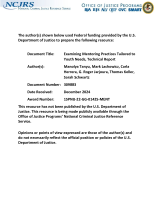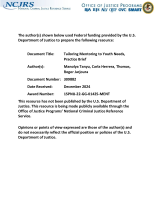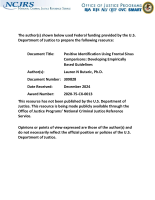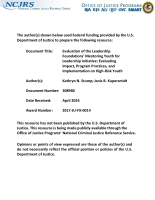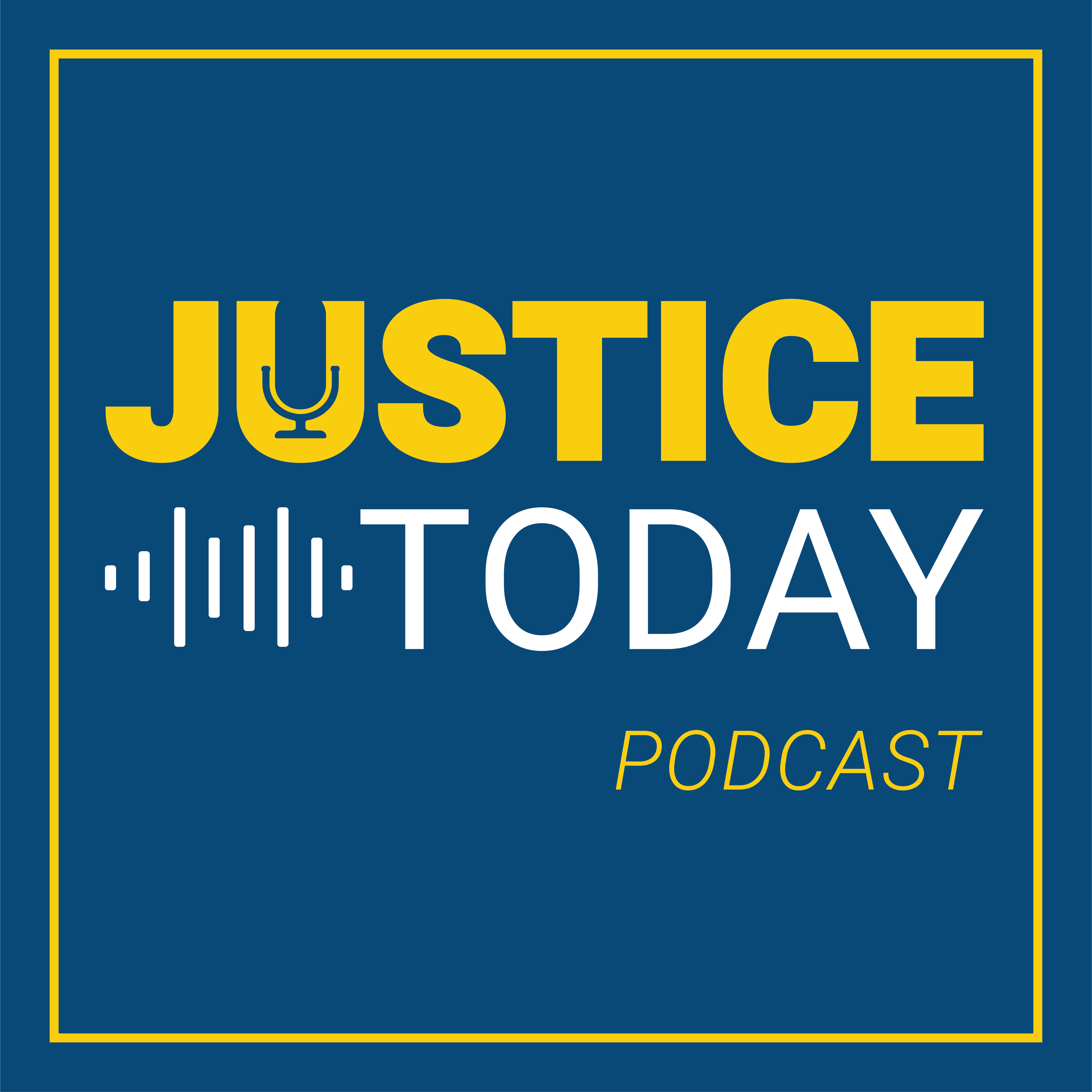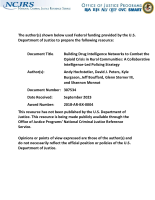Mentoring
Evaluating a Cognitive Behavioral Approach for Improving Life Outcomes of Underserved Young Women: A Randomized Experiment in Chicago
Preliminary Process Evaluation: 4-H Mentoring/Youth and Families with Promise (YFP) Program
Examining Mentoring Practices Tailored to Youth Needs, Technical Report
Tailoring Mentoring to Youth Needs, Practice Brief
Infusing Evidence into Police Reform: Field Initiated Action Research with the Louisville Metro Police Department
Positive Identification Using Frontal Sinus Comparisons: Developing Empirically Based Guidelines
Evaluation of Reach & Rise® Program Enhancements to Cognitive Behavioral Mentoring, Technical Report
Celebrating 10 Years of NIJ’s Law Enforcement Advancing Data and Science (LEADS) Scholars Program - 2024 NIJ Research Conference
In 2014, NIJ established the Law Enforcement Advancing Data and Science (LEADS) Scholars Program to support research-minded, mid-career sworn law enforcement officers working to integrate research into agency policy and practice. The LEADS Scholars Program helps participants develop independent research and provides support to identify current evidence on priority issues.
See the YouTube Terms of Service and Google Privacy Policy
NIJ FY24 Domestic Radicalization and Violent Extremism Research Center of Excellence
Redesigning Life in U.S. Prisons
The prison system in the U.S. typically places a heavy emphasis on security, control, and punishment, and this foundation can create an adversarial culture within correctional facilities — incarcerated individuals versus correctional staff. But what if that culture could change? What would it look like? How would it impact not only incarcerated individuals but also correctional officers and other staff?
Long-term Impact of the Fostering Healthy Futures for Preteens Program on Suicide-related Thoughts and Behaviors for Youth in Out-of-home Care: A Randomized Controlled Trial
Assessing for Impact: Key Elements to Successful Group Mentoring at the Boys & Girls Club of Metro Atlanta
Evaluation of the Leadership Foundations' Mentoring Youth for Leadership Initiative: Evaluating Impact, Program Practices, and Implementation on High-Risk Youth
Closing Cases Using Gunshot Residue
Not every crime scene will have definitive evidence, such as DNA, to link an individual to a crime. In those cases, law enforcement relies on other evidence to build the burden of proof. NIJ graduate research fellow Dr. Shelby Khandasammy developed a tool to analyze organic gunshot residue and distinguish between different firearms calibers and manufacturers. She joins Marie Garcia, office director for the Office of Criminal Justice Systems at NIJ, to talk about her work and experience as a research fellow.
An Enhanced Mentoring Model’s Impact on Youth in Boys and Girls Clubs
Multidisciplinary Perspectives on the Implementation of a Comprehensive Sexual Assault Telehealth Program in Rural Communities: A Qualitative Study
Webinar: NIJ Research Assistantship Program Informational Webinar
This recorded webinar, originally held September 28, 2023, provides information on NIJ’s Research Assistantship Program, which offers highly qualified doctoral students the opportunity to bring their expertise to NIJ to work across offices and program areas to obtain a practical and applied research experience. The program is a research focused professional development opportunity for doctoral students from all academic disciplines. NIJ...



